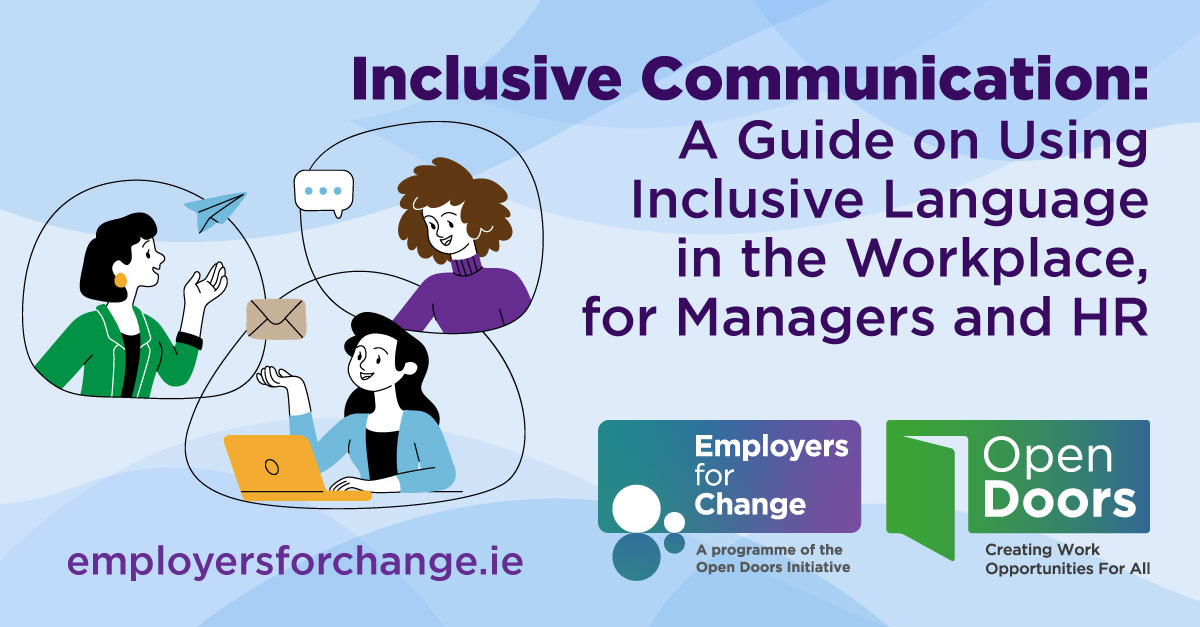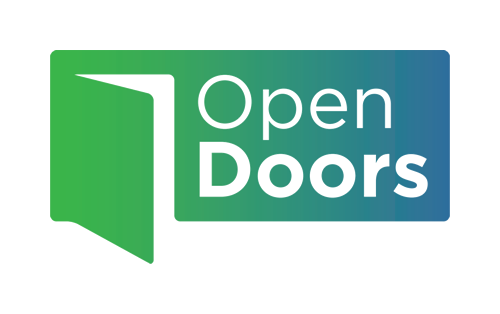
Imagine an employee hesitating before asking for the support they need, unsure whether their manager will see them as capable or as a burden. In these moments, language matters. The words managers and HR professionals choose can determine whether someone feels respected and empowered or dismissed and discouraged. Inclusive communication isn’t just about being polite; it’s about creating trust, fairness, and a culture where everyone can thrive. This guide offers practical tools for using inclusive language in the workplace, especially during conversations about disability, reasonable accommodations, and performance.
Setting the Tone in Conversations
Managers and HR professionals play a crucial role in setting the tone of sensitive discussions. Employees should feel safe to share information without fear of judgment or negative consequences.
- Use respectful, direct language that reassures employees of confidentiality.
- Present reasonable accommodations as part of good management practice, not as a personal favour.
- Emphasise solutions and collaboration rather than deficits.
Example: Instead of asking, “How serious is your condition?”, try, “What changes would help you perform at your best?”
Referring to Employees
The language we use to describe disability carries weight. Some people prefer person-first language (e.g., “a person with autism”) because it recognises them before their health condition. Others prefer identity-first language (e.g., “an autistic person”) because it expresses pride and ownership of their identity. Both choices reflect deeply personal perspectives, and neither is universally right or wrong.
As a general guideline, person-first phrasing can be a helpful starting point, since it reduces the risk of reinforcing stereotypes. However, the most respectful option is always to ask the individual what they prefer and to follow their lead.
Example: “I see you’ve disclosed having autism. How would you like me to refer to this, as ‘a person with autism’ or as ‘an autistic person’?”
Check our guide to learn more about this: EFC Disability Terminology Guide
Talking About Reasonable Accommodation
The way reasonable accommodations are described can shape how they are perceived. Referring to them as “reasonable accommodations” rather than “special treatment” keeps the focus on equality and inclusion.
- Say: “What reasonable accommodations would support you in carrying out your role?”
- Avoid: “We’ve never done this before” or “Can you manage without it?”
- Keep written records factual and neutral, avoiding unnecessary medical detail.
- Follow up regularly to check whether reasonable accommodations remain effective, especially if the role or environment changes.
Performance Reviews and Feedback
Reviews should reflect the employee’s role, contributions, and goals, rather than assumptions about their disability.
- Focus on outcomes, achievements, and future development.
- If barriers arise, frame them in terms of systems or processes rather than personal shortcomings.
- Example: “The scheduling tool seems to be creating delays. Would alternative software or adjusted timelines make things easier?”
- Recognise accomplishments without linking them to disability. For instance, avoid saying, “You’ve done well despite your condition.”
Confidentiality and Disclosure
Respecting privacy is essential. Disclosure is always the employee’s choice.
- Do not request medical details that are not directly relevant to workplace support.
- Use inclusive phrasing: “You don’t need to share detailed medical history information. Let’s focus on what workplace changes could support you.”
- Share information only with the employee’s consent, and only with those who need to know.
Check out our toolkit on disclosure here: EFC Disclosure Toolkit
Everyday Pitfalls to Avoid
- Dismissing reasonable accommodations requests by citing budget or precedent.
- Making disability central to performance discussions.
- Using pity-based or medicalised language (“suffers from,” “struggling with”).
- Speaking to an assistant or interpreter rather than directly to the employee.
Training for Managers and HR
Organisations benefit when managers and HR have the skills to communicate inclusively. Training can include:
- Example scripts for accommodation conversations.
- Practice scenarios for performance reviews with disabled employees.
- Active listening exercises to confirm understanding.
- Guidance on avoiding “fix-it” language and instead working collaboratively.
Building an inclusive workplace is an ongoing process, and organisations don’t need to do it alone. Employers For Change provides expertise, training, and resources that help managers and HR professionals develop the skills to communicate inclusively and support employees with disabilities effectively.
Building a Supportive Culture
Inclusive communication works best when it is part of organisational culture. Managers and HR can:
- Normalise reasonable accommodation requests by embedding them in HR policy.
- Review job descriptions and workplace processes for accessibility.
- Share examples of effective, reasonable accommodations to reduce stigma or resistance.
- Consider introducing the Reasonable Accommodation Passport by IBEC, ICTU and Employers for Change if you’re in Ireland. This opens up conversations around reasonable accommodation in the workplace.
Inclusive communication is not about lowering expectations or offering special treatment; it’s about ensuring fairness, respect, and equal opportunity. When managers and HR professionals focus on reasonable accommodations, achievements, and collaboration, they create an environment where employees feel confident to share their needs and proud of their contributions. Language has the power to build trust and dismantle barriers. By choosing words that respect and empower, organisations move closer to a culture where all employees’ skills are recognised, and everyone has the chance to succeed.

